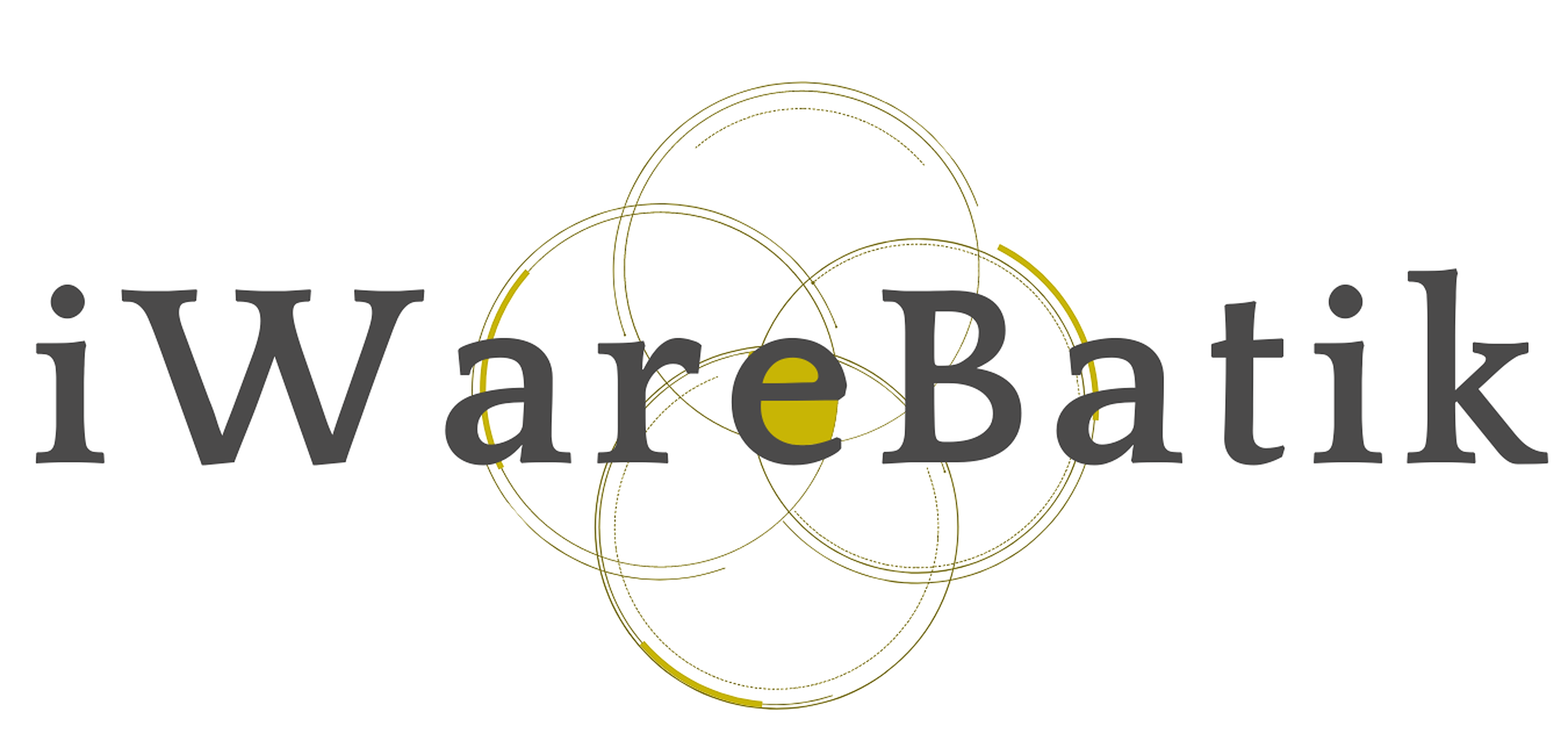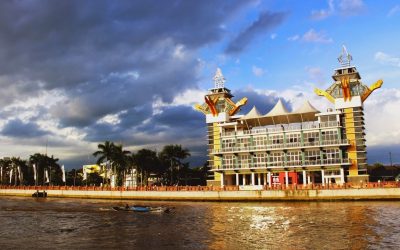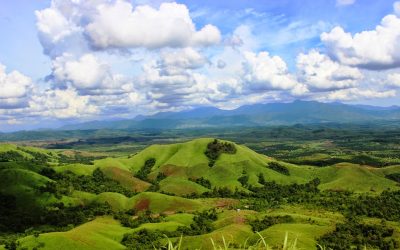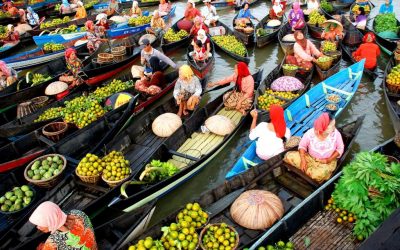Home / Batik Regions – Central Indonesia – Kalimantan Island – South Kalimantan / Bubungan Tinggi Traditional House
Cultural Destination
Embrace the spirit of the place!
Bubungan Tinggi Traditional House

Bubungan Tinggi House (photo: Indonesia-tourism)
Bubungan Tinggi House
The traditional house of Banjar Tribe in South Kalimantan is known for its steep roof. According to Banjar society, a house does not only stand for shelter above your head, but it is an expression of culture, hope, and belief. All these values are expressed in the way it is built.
Tourist Attractions in South Kalimantan
Taman Siring Tower
Taman Siring Tower is the iconic landmark of Banjarmasin city that you can’t miss
Rimpi Hill in Pelaihari
If you want to see unique and different natural scenes, you can visit
Lok Baintan Floating Market
As you can imagine, the most authentic thing is that you can buy things and even
South Kalimantan
Batik Motifs
Tampuk Manggis Sasirangan
The motif illustrates the philosophy of the mangosteen fruit, which is
Gigi Haruan Lidi
The Gigi Haruan Lidi motif is taken from the name of the cork fish and is a symbol of
Discover
Indonesian
Batik
Motifs
Desa Na Tolu
The Desa Na Tolu characteristic pattern symbolizes the Batak philosophy of existence and
Mahkota Siger
Siger is the crown of a noblewoman in ancient time. It is a symbol of femininity, strength, and
Buketan Bali
The Balinese bouquet (Buketan Bali) is a floral arrangement and the name is
Parang Seling
Parang Seling or “alternating daggers” is a royal batik motif. It is a feminine variant of
Pattimura
Pattimura is the name of an Indonesian hero who fought against colonialism in
Sandeq
Sandeq Boat is a symbol of the maritime importance of the West Sulawesi region. The greatness of
Insang Ikan
Insang refers to the gills of the fish. This is a typical pattern of Malay ethnic who inhabits
Pati-Pati Pinehiku
It symbolizes the hierarchy in society and the social status of the Mekongga
Sero Tangga
The Sero Tangga illustrates an endearing feeling and sacrifices of a person to fulfil
Tampuk Manggis Sasirangan
The motif illustrates the philosophy of the mangosteen fruit, which is
Honai
The Honai is inspired by the traditional house of the Papuan community living in
Gedhog Kembang Waluh
a combination of Javanese cultural motif of the Majapahit kingdom (XII-XIV century) with
Parang Rusak
Another meaning behind this motif is an unconquerable spirit, symbolized by
Dayak Kamang
Kamang motif is generally found in the Dayak tribe shield because it is believed to
Wakatobi
It symbolizes the coastal beauty of the Wakatobi island and the symbol of Patra symbolizes
Lok Baintan Floating Market
As you can imagine, the most authentic thing is that you can buy things and even
Dayak Taghol
Dayak Taghol has a distinctive style of four curved lines and small dots. This motif represents
Pohon Hayat (Tree of Life)
The Batik motifs in Lampung are dominated by the acculturation of Buddhist and
Bekantan Pakis
This motif represents Pakis Haji (Polystichum setiferum), an endemic plant in
Hiu Taliyasan
Indonesia is also home to the world’s largest fish, the whale shark (Rhincodon typus). Hiu Taliyasan refers to
Tifa Totobuang
The batik motifs illustrate Maluku’s traditional music instrument called
Teguh Bersatu
This batik motif shows the strength of the people of Kupang. It also represents a sense of
Jumputan Bintang
The word Jumputan means the tie-dye technique, while the word “Bintang” refers to
Tikar Natuna
The Tikar Natuna motif is adapted from the traditional making of pandanus mats in
La Galigo
La Galigo is a literary work of the Buginese Epic that has 300 thousand epic lines. It is considered even
Enggang Dayak
Local people beliefs that hornbills are an incarnation of the Commander of the Birds. It has supernatural
Gentala Arasy
Built as high as 80 meters, the tower also highlights the historical side of
Pala Salawaku
This motif illustrates the unique weapons of the Maluku region, namely
Srimanganti
The name of the Srimanganti motif is derived from Palace’s hallway that connects to
Daun Simpor
This motif is inspired by the Simpor plant (Dillenia Suffruticosa) which is a typical
Karawo Mahkuta
Mahkuta refers to Gorontalo’s traditional crown. It represents noble characters of
Sido Mulyo
Sidomulyo is one of the classical motifs, which is specifically used for the bride’s costume in
Tubo Kelapa
Coconut tree is a symbol of a good character and strong mentality. It illustrates the more success a person, the more
Malinau Cultural Festival
You will witness a unique competition that might not be found other than in
Sekar Jati
Sekar means flower and Jati refers to teak trees that symbolizes a strong mental character that
Pucuk Rebung Riau
Pucuk Rebung symbolizes heart determination in achieving goals, good luck, and
Kaharingan
The Kaharingan or ‘tree of life’ based on the Dayak tribes’ belief system. This tree symbolizes
Gajah Way Kambas
The motif illustrates the Lampung’s natural reserve, the Way Kambas. it also symbolizes
Merak Ngeram
The hatching peacock motif has a very deep meaning which refers to the sacrifice and
Bomba Mawar
This motif means sacred love for family, kingdom, and God; It also illustrates
Daun Lada Hitam
The black pepper motif represents the main commodity of Bangka Belitung
Bale Lumbu
This motif signifies the welfare of the ancient Sasak society. Bale also symbolizes the
Pinawetengan
The Pinawetengan Batik pattern was taken from a prehistoric inscription in
Paqbarre Allo
The word “Barre” means round and “Allo” means the sunlight. This motif is interpreted as
Besurek Rembulan
This batik illustrates praise for God who created the wonderful universe
Sekomandi
Its philosophical meaning is the eternal union which refers to a saying “until death do us part”
Tengkawang Ampiek
With its many advantages, the Dayaks use this leaf in ritual ceremonies. This plant is a symbol of
Rangkiang
The word “Rangkiang” refers to the rice granary in the Minangkabau language. It symbolizes
Manguni Minahasa
Manguni is identified as the symbol of the Minahasa people. Manguni is known as a
Singayaksa
The Singayaksa motif comes from the name of a place where Sultan Hasanuddin used to
Lipaq Sabe
Lipaq Saqbe contains a simple geometric classical motif with various flower decorations. This textile is
Kuda Kupang
Horses symbolize wealth. It contains noble values of virtuous characters that bring
Karawo Pinang
Pinang refers to the Palm areca tree. This motif is considered as the original
Tabir Tanjung
Tanjung flower is a type of Cherry tree flower, which is commonly found in
Bintik Tujuh
The Bintik Tujuh (Seven Dots) motif has 7 white spots and green color gradation as
Wirasat
Wirasat or divine inspiration is a gift from God. This inspiration is symbolized by
Prada Papua
The word “Prada” in the Javanese-Indonesian dialect means a batik textile that
Cengkeh
The clove flower motif is the main commodity of the Tolitoli Regency. This motif represents
Salakanagara
Salakanagara batik motif illustrates the first kingdom in the Betawi land
Gamolan
This motif illustrates Gamolan, a bamboo musical instrument of Lampung that is
Gorga Simeol-Meol
The Gorga Simeol-meol is a pattern of plant tendrils. it is regarded as a symbol of longevity and
Rumah Mamuju
the Batik motif illustrates the house of Mamuju King with the stairs, located on the left of the wooden stage house
Tanah Liek
The word “Tanah Liek” refers to clay in Minang language. It is also known as
Kerawang Tegak Aceh
The Vertical Upright (Kerawang Tegak) Motif symbolizes a person who has a strong
Leuit Sijimat
This motif reflects the daily activities of the Baduy tribe in Banten. The main ornaments of batik motif consist of:
Tenun Bima
The motifs are adopted from Bima woven textile. This pattern has received a great
Gurdo Solo
Gurdo or garuda bird is the mount of the Indian god Vishnu. As the Sun Bird,
Ukir Sentani
The Ukir motif is a batik motif that is inspired by various traditional Sentani wood carvings
Durian Pecah
Broken Durian motifs depict the foundation of faith. The second half signifies the mastery of
Angsa Duo
According to legend, the Angso duo batik motif is a pair of swans that are believed to have led Princess
Taiganja
Taiganja is a precious gold pendant that shows the social status of the Kaili family. It is
Kawung
The Kawung motif was created by Sultan Agung Hanyokrokusumo (1593 – 1645) as a symbolic gift for
Lontara
The Lontara script itself is a typical ancient script of Bugis and Makassar communities. History records that
Kaganga Tanah Rejang
If Batik Besurek combines Arabic calligraphy motifs, then the Kaganga batik takes



